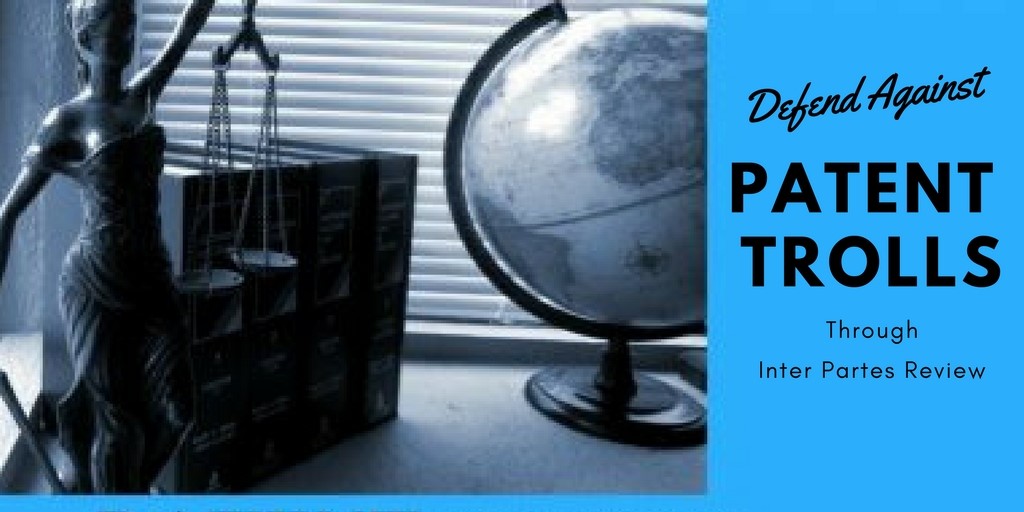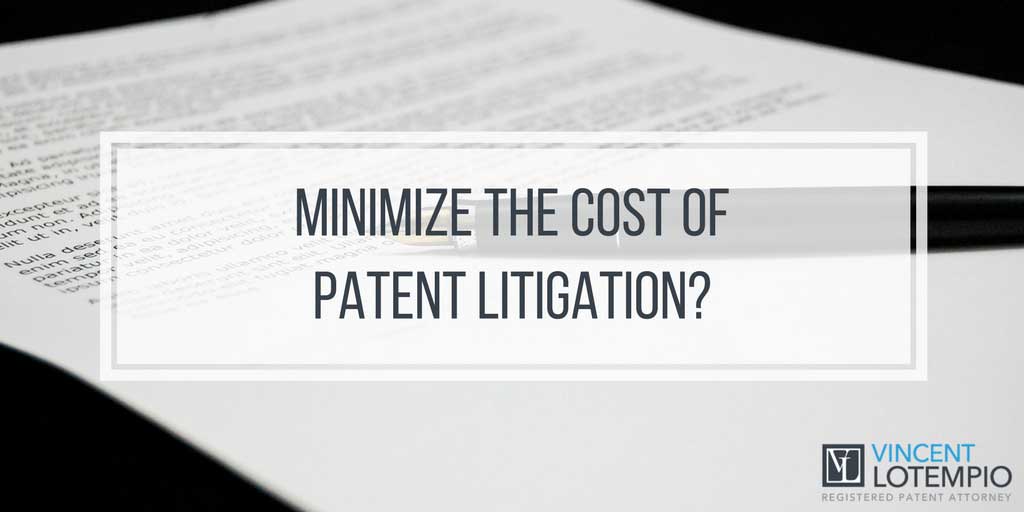Patent Trolls and Inter Partes Review
Undoubtedly, patents are one of the most valuable assets a company or an individual can possess. Patents are a very strong form of intellectual property protection, allowing patent owners to exclude others from making, using, selling, offering for sale, or importing a patented invention into the United States. But every so often, a lawsuit ensues because a party infringed on another party’s patent, either knowingly or unknowingly. Patent litigation is an extremely expensive process. Both the plaintiff and defendant will often spend thousands, if not millions of dollars on the lawsuit.
At other times however, certain types of parties or groups do not bring suit to resolve issues, but instead to derive revenue. These entities are called patent assertion entities or patent trolls. Patent trolls have been around for some time now. They’re entities that generally have patents and patent rights, but do not provide any businesses or services. Instead, they primarily use their patent rights to sue others for infringement.
Defending against patent trolls
To bring an infringement lawsuit, patent trolls need to have a valid patent. However, if a patent troll’s patent rights are invalidated, litigation can possibly be avoided. Rather than spending millions to litigate over infringement, defendants now have the option of invalidating patents through a method called inter partes review. Inter partes review is post-grant proceeding that the America Invents Act introduced to evaluate the validity of issued patents. Inter partes review can be initiated 9 months after the patent issuance date. Grounds to challenge a patent’s validity in an inter partes review proceeding include Novelty (35 U.S.C. § 102) and Obviousness (35 U.S.C. § 103). Compared to litigation, inter partes review is often less expensive and not as time consuming, making it a valuable tool.
For more information on inter partes review, click here.
Some negative consequences arising from inter partes review
Although inter partes review has become a useful tool to defend against patent trolls, some negative consequences have arisen after the introduction of inter partes review. More specifically, a different breed of patent trolls called IPR trolls, have emerged shortly after the new post-grant review process was ushered in. Unlike patent trolls who mainly use patents rights to sue for infringement, IPR trolls use inter partes review to challenge the validity of patents to affect a company’s stock value.
How do patent trolls use inter partes review to affect certain industries?
Often times, IPR trolls use inter partes review to challenge the validity of a company’s patent to bring their stocks down. Patents are one of the most valuable assets that a company can have in their possession. Taking assets away from a company will not only hurt their stocks, but will also affect how a company can conduct business as well. Companies and individuals are less likely to invest in a company who currently has the validity of their intellectual property rights being questioned.
Costs and considerations
No doubt, patents are one of the strongest forms of protection the law can offer for intellectual property. But the cost of obtaining a patent is extremely high, especially for drug patents.
Not only does a party bear the substantial cost of securing patent protection, but drug patents also require FDA approval. Meeting FDA approval requires a substantial amount of research and testing, which may cost hundreds of millions of dollars to satisfy.
Of course, one perspective would be that without patents, then pharmaceutical companies can’t control and influence drug prices as much, right? That would be beneficial since drugs would become more accessible, right?
But there is also another perspective to account for:
If pharmaceutical companies expend an exorbitant amount of resources in getting a patent and meeting FDA approval but cannot recoup their losses, there is less incentive to even pursue patent protection and disclose their inventions in the first place. This may impede how fast we can advance the sciences and arts as a whole, which can be detrimental for society. Advances in new drugs and technologies help treat and cure the many ailments and diseases that afflict millions of people worldwide.
Not only is the patent’s validity at stake, defending against an inter partes review proceeding is also an extremely costly process. Even if the patent is found to be valid, parties may lose a substantial amount of resources due to the inter partes review process and legal fees.
For statistics for inter partes review and other post-grant review processes, click here.
However, there may be drastic changes in patent law and inter partes review due to the upcoming Supreme Court case.
Upcoming Supreme Court case
The United States Supreme court has granted certiorari in the case Oil States vs. Greene’s Energy Group, et al. The question that was presented to the Supreme Court is
“[w]hether inter partes review—an adversarial process used by the Patent and Trademark Office (PTO) to analyze the validity of existing patents—violates the Constitution by extinguishing private property rights through a non-Article III forum without a jury.”
Inter partes review can be affected depending on how the Supreme Court will rule on this issue. The decision can possibly affect all parties that utilize inter partes review, including IPR trolls.
How do you think the Supreme Court will rule on the constitutionality of inter partes review? Tell us what you think and leave a comment!
Get Started Today!
Does this article interest you? Subscribe to the LoTempio Law email newsletter to receive posts and updates just like this conveniently in your email box!
If you’ve enjoyed this blog post, we have lots more where this came from, including an Inventors Guide Video Series where we help you turn your good idea into a profitable invention, and tons of other great content. Simply enter your email address and hit sign up and you’ll get everything, including blog posts like these, conveniently in your email box!
Have any questions? Give us a call at 1-800-866-0039. Consultations are FREE.
Disclaimer: This article is not intended to be legal advice and is meant to be for educational or entertainment purposes only. For legal advice and questions, please contact registered Patent Attorney Vincent LoTempio.




